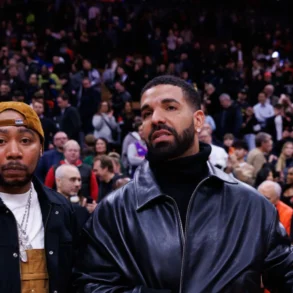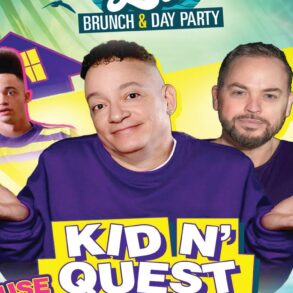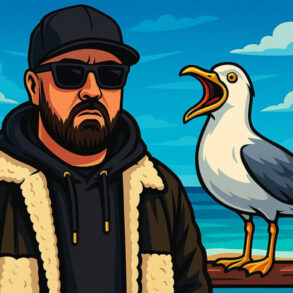Revisiting my 2011 interview with @Peace for Rip It Up Magazine (NZ)
Photographer Credit: Hone St John
Selected Works is a weekly (usually) newsletter by the Te Whanganui-a-Tara, Aotearoa (Wellington, New Zealand) based freelance music journalist, broadcaster, copywriter and sometimes DJ Martyn Pepperell, aka Yours Truly. Most weeks, Selected Works consists of a recap of what I’ve been doing lately and some of what I’ve been listening to and reading, paired with film photographs I’ve taken + some bonuses. All of that said, sometimes it takes completely different forms.
Between 2011 and 2014, @Peace, a studio/live collaboration between Tom Scott, Lui Tuiasau, Brandon Haru, Dandruff Dicky and Christoph El Truento, released three significant projects, their self-titled album (2011), the Girl Songs EP (2013), and @Peace And The Plutonian Noise Symphony (2014). In the process, they slowly abstracted their jazzy-tinged reality raps, and pliant future beats into a form of celestial psychedelic soul music in the same traditions as The Sun Ra Arkestra and Outkast.
Before the release of their self-titled album, I profiled the group for the now-shuttered New Zealand music magazine Rip It Up. Thirteen years later, I’m happy to re-present this story via my newsletter.
Each One Teach One: A logical outgrowth of a particular sphere of the Auckland music community, @Peace, represents a point of intersection between the music of Homebrew, Nothing To Nobody, Christoph El Truento and beyond.
When you see the symbol and word combination @Peace, there are a couple of ways to read it: 1. An abbreviation for the phrase “at peace”. 2. A profile handle on the ubiquitous social networking service Twitter. If you’re an active Twitter user, it’s a reminder of sending a message to someone else on the social network. Fittingly, when I begin liaising with Homebrew’s Tom Scott and Nothing To Nobody’s Lui Tuiasau to interview them about their hotly tipped community music project At Peace, most of our communication occurs through Twitter. This makes sense; as for Scott, Twitter has (alongside YouTube, free music downloads, one hell of a live show and an everyman attitude) been a key tool in promoting his well-respected, zeitgeist-capturing hip-hop family Homebrew.
While Twitter, social networking and viral marketing are signposts of the era of Homebrew, Nothing 2 Nobody, and now @Peace have emerged in, the phrase “at peace” is also a perfect summary of the general feeling and mood captured by their collaborative self-titled @Peace album. Centralised around Scott and Tuiasau’s lucid capabilities as rap-oriented social commentators, the nine-song cycle places their tales of life as it is, and life as it could be against beds of emotive washy sound and wandering (or sometimes strident) drums. Pulled together by their executive producer, Christoph El Truento, a beat-maker who fashions his music with a sonic sensibility comparable to the cubist style of painting, the record matches Scott and Tuiasau with some serious local talent. Talent drawn from what Homebrew/Nothing To Nobody affiliated rapper Lucky Lance (from hip-hop crew Team Dynamite) describes as, “Our Little Circle.”
“Our Little Circle” is shorthand for a wide-ranging umbrella of artists, musicians, DJs and rappers operating within Auckland’s sprawling confines. A sea of unique individuals forged at the intersection between art, skateboarding, music, serious partying, basketball and beyond, @Peace, is a logical outgrowth (and perhaps maturation) of this community. It’s a project by community members with the wider community in mind. And if @Peace, a record recently described by Auckland journalist Russell Brown as “one of the better albums to come out of this country, ever,” is the result of many factors coming to a head, to understand it properly, we will have to return to its logical chronological and locative beginning, Scott’s year and place of birth.
“I was born in 1984, in Brixton, London,” he says, speaking down a landline from Auckland. “My parents moved us here when I was three to get a better life.” With a record-loving bass player for a father and a hippie for a mother, Scott was immersed in music from day one, beginning his new life in New Zealand in the Auckland suburb of Avondale. Describing himself as a typical kid, “We were mainly just playing touch on cricket on the street,” at age ten, his father gave him a copy of Snoop Dogg’s classic Doggystyle album (on cassette no less), setting his development as a rapper in motion.
“I was just a kid, you know,” he recalls. “I just wanted to ride my bike and that, but when I was about sixteen, I started trying to make my own music. Until then, I was writing down the words for other people’s songs and trying to rap along.” At that time, other rappers included Ice T and Naughty by Nature. It was a period in which, as a teenager, Scott recalls thinking a tape that had swearwords on it was the coolest thing ever. Hip-hop was in the air at the time. Classic Kiwi one-hit wonders 3 The Hardway had made an appearance at his school, and he remembers everyone knowing a verse from something. Tellingly, most of the examples he mentions are Mobb Depp songs.
When Scott was sixteen, his father bought him a soundcard, and he started recording. Pulling down instrumental tracks off file-sharing programs, Scott began testing out ideas. Eventually, he discovered that Shaun ‘Soulchef’ Hopkins, a childhood friend who lived a street over from him, was making hip-hop beats. Teaming up, they recorded a couple of now confidentially classified street albums, the process in which, in a sleep-out behind the house, Scott learned his craft.
Dropping out before the end of high school, he, in his words, “Worked bullshit jobs. Labouring jobs, digging holes, sorting mail, packing rice, everything you wouldn’t want to do,” experiences which seem to inform the everyman lyrical content he’s known for. Switching up the pace, Scott headed to Otago University, intending to study neuroscience. However, university life continued to be a hip-hop life, and education went by the wayside. Returning to Auckland, with Hopkins on production duties, in 2007, he put out Homebrew Light, the first Homebrew EP. “It was well received,” he remembers. “So I kept on making music.”
Around this time, thanks to the internet, Scott connected with another emerging beat-maker, Haz Beatz. Describing their relationship as, “We became boys, and now I’m boys with all his boys, and he’s boys with my boys; and everyone knows everyone,” Scott and Huavi, alongside another of Scott’s childhood friends, Lui Silk, now his hypeman, became the core of the Homebrew we know today.
Together, they spent one-week writing and recording a free download EP called Last Week, which was about a week in their lives. Between Huavi’s soundtrack soul boom-bap instrumentals and Scott’s witty life observation rap skills, the EP had the internet (and eventually, the critics) on smash. It led to a follow-on series of free download EPs, coupled with a humorous series of web video skits and skirmishes with the ruling local music industry oligarchy of the time. In the process, Homebrew quickly became an in-demand brand on the national touring circuit.
With the management and performance assistance of respected Auckland hip-hop DJ Substance, they began financially capitalising off their buzz through a series of Homebrew-related t-shirt releases and live performances backed by a real band. “I think the response made us feel like this is something worth putting effort into,” Scott explains. “If you’re doing something and it’s not being recognised, as much as you might be like I’m underground, it eats you up after a while… Finding an audience makes you feel blessed, you know, that people give a shit about what you do.”
At the same time, Lui Tuiasau, a kid several years younger than Scott, with some completely unknown “flyer-than-the-rest-of-them” rap skills, had finally found a reason to take his hip-hop ambitions seriously: Homebrew’s music. “I had boys who used to rap,” Tuiasau remembers. “I used to do battle rhymes at school, and I had some rhymes I had written when I was ten. I’d always been into writing, not just rhymes, but in English class at school as well. I used to get pretty good marks. I didn’t take rapping seriously until I heard Homebrew, though. Something just clicked in my mind. It was like, this is some bad [meaning good] New Zealand hip-hop. Maybe I could take this seriously.”
Born and raised in Wellington, Tuiasau also benefited from a music-loving family. “My dad used to listen to funk, soul, jazz, all the good old stuff,” he recalls. “The stuff I listen to now.” A saxophone and keyboard player when he was younger, Tuiasau even did the barbershop quartet thing, often finding himself skipping classes at high school to go jam in the music room. As a result, school didn’t work out that well, and he ended up heading down to Queenstown to take a course. In the intervening time, Tuiasau’s family moved up to Auckland, so when the course didn’t pan out, he headed up the line to join them, soon afterwards enrolling in an audio engineering course. While studying audio engineering, Tuiasau befriended a multi-instrumentalist and beat-maker named Barnaby Marshall. Together as Nothing To Nobody, they assembled a smooth mixture of soul-infused, content-heavy hip-hop tunes. And just as Homebrew’s music had captured Tuiasau, Tuiasau’s music would soon, in a fitting return, touch Scott equally – in the process sparking the At Peace project.
“I used to have a radio show on Base FM,” Scott remembers. “We’d always have MCs coming up to it. One day Lui [Tuiasau] came up. I was like, oh, who is this cat? Then he started playing this music. He was like, that’s me. I was like, for real? Who made the beats? He said his mate Barney and told me about their group. I was like, fuck, this shit is amazing.” Scott asked Tuiasau to come back to his house for a jam, and they instantly hit it off, triggering a process that saw their attempt to write one song in an afternoon turn into, as Scott puts it, “Six months and an album, as well as a lot of weed, beer and early mornings.” “I’ve been accepted into this really small circle of talent really quick,” Tuiasau says. “It was good. It put me in this situation when I couldn’t spit or write any wack shit. I’m working with Tom [from Homebrew]. I love this guy’s music. I could have never gotten an opportunity like this.”
Driving each other, the reality hedonism of Homebrew’s music and the uplifting observational tone of Nothing To Nobody found equal footing in their shared work. Together, they wrote with ease, which they both described as astounding. When they felt like they had a solid collection of songs, the two called up their beat-maker/audio engineer friend Dick Dastardly (Dandruff Dicky) and headed down the line with him for a mercurial weekend of recording in Taranaki. “We locked ourselves in this batch and just recorded,” Tuiasau remembers. Drawing the instrumentals they worked with from their little circle, a key beat-maker they kept returning to was Christoph El Truento. “Truent is so different to everybody,” Tuiasau says. “You might be on a trend, but Truent has already been there, bought the t-shirt and kept it moving. He was doing his own shit. That was something I hard-out admired. It was really inspiring, just seeing him on his own musical journey, doing what he wanted to do.”
As such, Tuiasau and Scott asked Truento to executive produce their record. He accepted, pulling @Peace into its intricate final form, piece by piece, much like a jigsaw, before calling on respected Wellington studio dude Benny Tones (of Electric Wire Hustle) for mastering duties. At the crux, it’s the sort of project that happened so quickly the participants can’t really remember how they got here. It’s been that much of a whirlwind.
On Saturday, the 9th of July 2011, Tuiasau, Scott and a small live band gave @Peace its first live performance. Gathering their little circle, friends and family in an intimate venue named The Wine Cellar (just off K Road), they performed a full run-through of the album. Lights dimmed slightly, Tuiasau and Scott’s wordplay rang out smoothly. Colliding with washy seas of textural synth, neck-snapping digital kicks and snares, live saxophone, twinkling keys and flourishes of live drums, the humour of songs like ‘Disfunktional’ and ‘Nobody’ sat perfectly alongside the optimistic yet serious tone of ‘Be Like’ and ‘@Peace’. Acknowledging their community and immediate environment on ‘Home’ and ‘My World’, they played with the idea of Armageddon on ‘Sky Is Falling’ and closed the evening out beautifully with ‘Nothing’, a song of beginnings and ends.
After the show, the crowd loitered outside the venue for impromptu attempts at break dancing, conversation and shared laughter. Born of minimal resources, minimal expectations, maximum heart and maximum art, @Peace is essentially the mirror of community held to the mirror of music, each reflecting back and forth into each other until the possibilities that life can grant us become infinite and endlessly sublime.
FIN.
This post was originally published on this site be sure to check out more of their content.






